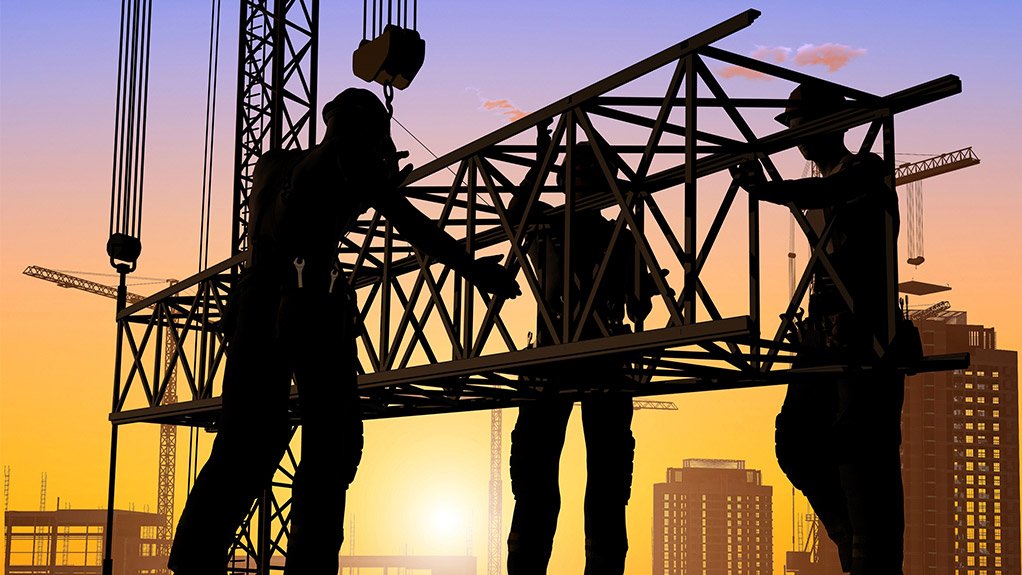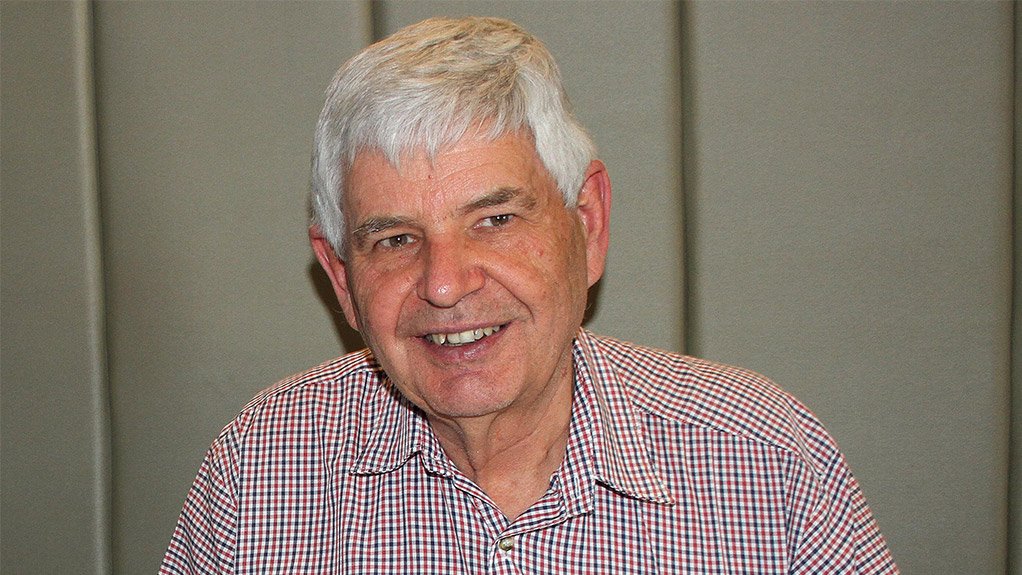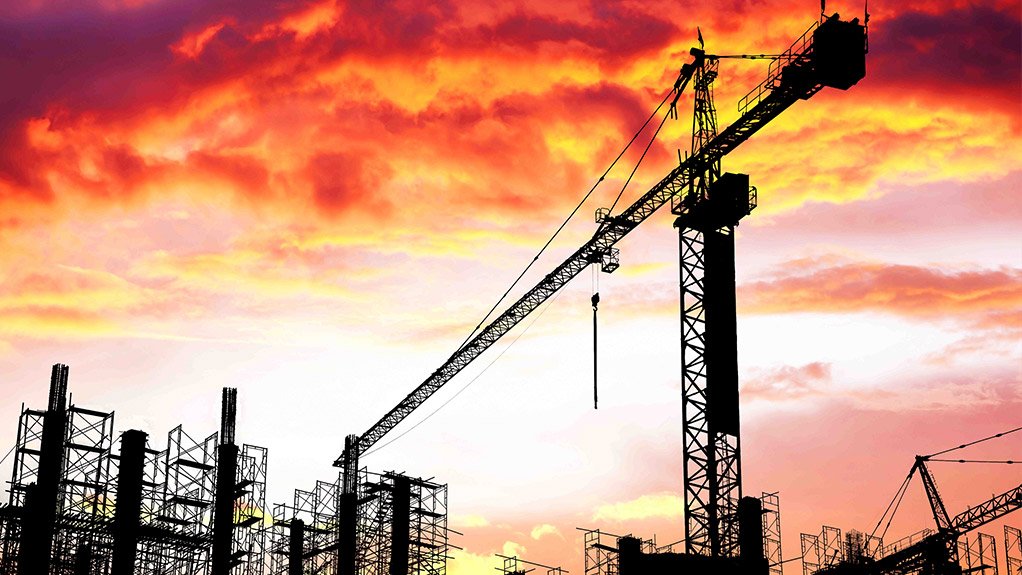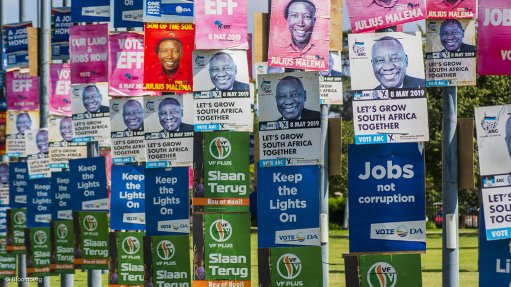No Easy Path To Peace On A Building Project
This article has been supplied as a media statement and is not written by Creamer Media. It may be available only for a limited time on this website.
When disputes arise on a building project, despite proper contractual procedures, what are the options to resolve the matter? Uwe Putlitz, CEO of the Joint Building Contracts Committee (JBCC), here looks at the situation – and finds that in the end time, productivity and harmony are not part of most of the avenues towards agreement.
Regardless of the Standard Form Contract (SFC) chosen, all the contracts include dispute resolution options. Implementation of these procedures to a large extent involves the parties at war consulting trained outsiders to avoid involvement of the legal profession unless absolutely necessary.
Let’s look at the trained outsiders that could be engaged to create settlement.
The first and best option is for the parties to share what could end up being quite a few cups of coffee to amicably discuss the issues and explore possible solutions acceptable to both. Obviously, this is the fastest and most cost-effective solution and all information remains confidential. But, sadly, it’s probably the least likely way employed in dispute dilemmas in the world we live in today.
So, if coffee is not on the menu, the next step could be to move on to mediation and hire an outsider to mediate the matter under dispute. Mediation has gained support in the building and construction industry in most countries, including South Africa. But it is important that the mediator should be trained to deal with people to fully extract and fully understand the crux of a problem to guide the parties to possible solutions. The parties talking to one another could also agree to resolve the matter by asking the mediator - who has been privy to all relevant information - to suggest a non-binding solution to the parties, commonly referred to as ‘expert determination’.
If mediation does not work, there’s adjudication. This process was evolved in the 1980s in England to find a speedy solution to mostly technical issues that led to payment disputes. Adjudication is widely used throughout the English-speaking world and most countries have regulated the process by publishing ‘adjudication rules’.
The adjudicator should be qualified to apply the principles of natural justice and have technical skills to analyse a problem and make an appropriate determination on such matters and its payment issues.
It is important to note that no certified payment can be withheld: payment must be made in terms of the contract for the undisputed amount while the disputed issues are referred to an adjudicator to resolve before the next payment cycle. The adjudicator’s determination is immediately binding - but may be overturned in subsequent arbitration.
This last level of dispute the resolution clauses in Standard Form Contracts is arbitration which is strictly regulated and largely follows court procedures. However, this a drawn-out process as it must deal with dispute issues in depth. Arbitrators must be qualified and operate within a set of rules. The arbitrator’s decision is final and binding and can only be overturned by a court order.
Some Standard Form Contracts provide for the appointment of a dispute avoidance board consisting of one or three persons (with technical, financial and legal skills) appointed on a retainer to keep an eye on all phases of a project to timeously identify possible problems that could become disputes and find alternative solutions before swords start getting crossed.
Outside the Standard Form Contracts process, the parties in conflict can turn to the courts and resort, one would think reluctantly, to litigation. This is an extremely long and very costly process involving several levels of legal expertise.
In fact, the South African Department of Justice has issued a directive that building-related disputes must be resolved using the dispute resolution procedures provided in Standard Form Contracts and only be referred to the courts by exception. In other words, don’t waste the courts’ time – and your money - unless you absolutely must.
So, to sum up, depending on the nature of a project, and its location, any or all the techniques in Standard Form Contracts listed above may be employed to resolve disputes. But it would be so much better for all concerned if more of the parties really want to avoid conflict and first try the coffee compromise chat first.
JBCC is a non-profit company that represents building owners and developers, professional consultants, and general and specialist contractors who all provide input for the compilation of JBCC agreements (contracts) that portray the consensus view of the committee’s constituent members. For details about JBCC training seminars, email info@jbcc.co.za, or phone 011 482 3102.
Comments
Announcements
What's On
Subscribe to improve your user experience...
Option 1 (equivalent of R125 a month):
Receive a weekly copy of Creamer Media's Engineering News & Mining Weekly magazine
(print copy for those in South Africa and e-magazine for those outside of South Africa)
Receive daily email newsletters
Access to full search results
Access archive of magazine back copies
Access to Projects in Progress
Access to ONE Research Report of your choice in PDF format
Option 2 (equivalent of R375 a month):
All benefits from Option 1
PLUS
Access to Creamer Media's Research Channel Africa for ALL Research Reports, in PDF format, on various industrial and mining sectors
including Electricity; Water; Energy Transition; Hydrogen; Roads, Rail and Ports; Coal; Gold; Platinum; Battery Metals; etc.
Already a subscriber?
Forgotten your password?
Receive weekly copy of Creamer Media's Engineering News & Mining Weekly magazine (print copy for those in South Africa and e-magazine for those outside of South Africa)
➕
Recieve daily email newsletters
➕
Access to full search results
➕
Access archive of magazine back copies
➕
Access to Projects in Progress
➕
Access to ONE Research Report of your choice in PDF format
RESEARCH CHANNEL AFRICA
R4500 (equivalent of R375 a month)
SUBSCRIBEAll benefits from Option 1
➕
Access to Creamer Media's Research Channel Africa for ALL Research Reports on various industrial and mining sectors, in PDF format, including on:
Electricity
➕
Water
➕
Energy Transition
➕
Hydrogen
➕
Roads, Rail and Ports
➕
Coal
➕
Gold
➕
Platinum
➕
Battery Metals
➕
etc.
Receive all benefits from Option 1 or Option 2 delivered to numerous people at your company
➕
Multiple User names and Passwords for simultaneous log-ins
➕
Intranet integration access to all in your organisation

























